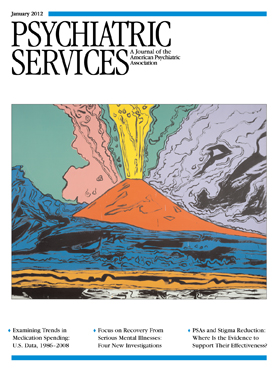Legal Challenges for Substance Abuse Treatment During Disasters
Abstract
Certain groups with preexisting mental and behavioral health conditions, such as substance use disorders, may be especially vulnerable during and shortly after disasters. Researchers have found that substance abuse treatment programs and the individuals they serve experienced major disruptions after the September 11, 2001, attacks on the World Trade Center and the Pentagon and after Hurricane Katrina. This column considers legal challenges that may arise when a rapid influx of licensed providers is needed for substance abuse treatment during disasters and reviews specific legal issues that disasters may raise for opioid treatment programs. Opportunities to mitigate legal challenges and facilitate substance abuse treatment during disasters are discussed. (Psychiatric Services 63:7–9, 2012)



